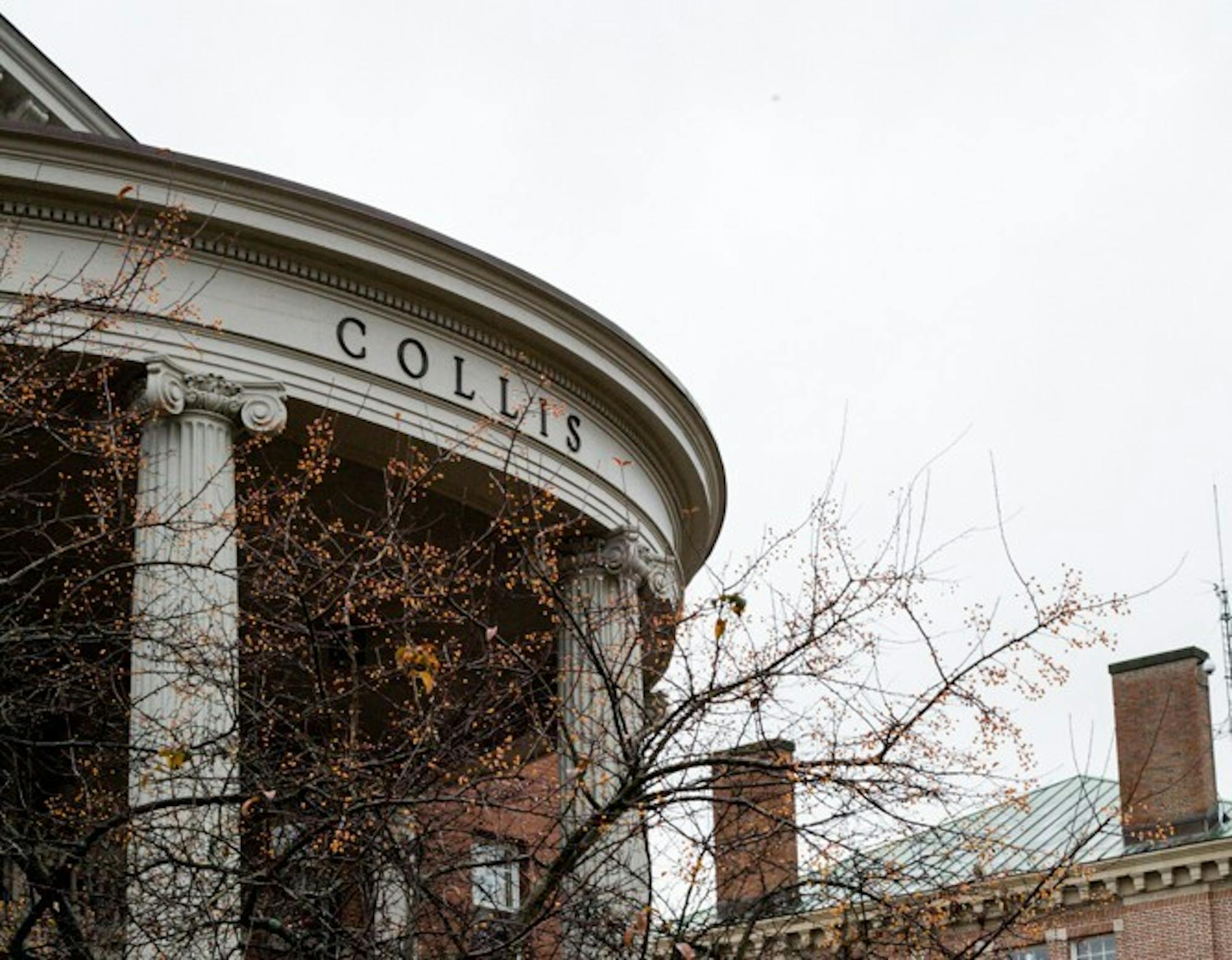Effective Feb. 14, Dartmouth-sponsored indoor, in-person events or events held at a Dartmouth location may now provide food and drink, in accordance with the College’s event guidance.
Provost David Kotz said that Dartmouth’s COVID-19 leadership group meets regularly to evaluate COVID-19 policies, and that they determined that the decrease in active COVID-19 cases on campus warranted a policy revision.
“We felt the [COVID-19] case counts had dropped to the point where we were comfortable adjusting the policy,” Kotz said. “You can have food, but we tried to put some guidelines around that to help run a successful event that’s reasonably COVID friendly.”
Although food and drink may now be provided at indoor events, Kotz said that there are guidelines so that event organizers are still respectful of people who may not feel comfortable attending events where eating is present. According to the guidance, events should be held in a space large enough for all attendees to “comfortably spread out” — especially if food and drink is provided — and that coordinators should also consider offering a grab-and-go option.
The change in policy has impacted organizations across campus. Collis Center director and Alcohol Management Program supervisor Joe Castelot wrote in an emailed statement that the AMP — the program through which student organizations register events that will serve alcohol — has been functioning throughout the term. Now that events with food and drink aren’t limited to strictly outdoor gatherings, there are currently “no restrictions pertaining to AMP,” he wrote.
Collis program board director Elise Avila ’22 said that the programming board had to adjust events where food and drink were provided by holding events outdoors on Collis porch, such as “Collis Wine & Whine” nights. According to Acalia, the lifted ban will allow the programming board to bring back its traditional events like watch parties, satisfying student demands.
“We’re really excited to be able to offer food again indoors,” Avila said.
Student involvement director David Pack wrote in an emailed statement that he appreciates the “increased flexibility” of the new guidelines for student organizations planning events.
“Our staff are happy to help those organizations plan successful events and navigate any confusion they might have about the current policies,” Pack wrote.
Phi Delta Alpha fraternity president Scott Crawshaw ’22 said that Phi Delt is “appreciative of the policy change” and that they are looking forward to resuming in-person social gatherings “over the coming weeks.”
“The COVID situation on campus seems to be well under control,” Crawshaw said. “We are excited for the coming months and hope to help foster a sense of community togetherness through fun and accessible social events.”
The College’s rollback of some restrictions, such as allowing masked indoor social gatherings on Jan. 24, has also allowed student organizations to return to in-person weekly meetings and plan larger in-person events.
Dartmouth Political Union president William Reicher ’22 said he is pleased to be back in person.
“It’s been really nice to go back to in-person for our weekly meetings because I often found that, while webinars can be easier on Zoom, face-to-face conversation for smaller, more casual events, is a really good thing for the club,” Reicher said.
Reicher added that the DPU hosted a student debate on abortion yesterday in Filene Auditorium, and also plans to host more in-person events in the spring term.
Although Reicher said he recognizes that while Zoom can be easier logistically, he believes the “payoff is better” when hosting in-person events.
“It means you actually get that experience of being there in the room with the person and are able to ask them questions,” Reicher said. “After the event is over, you are able to take that person out to Pine for dinner afterwards.”
Similarly, College Democrats co-president Miles Brown ’23 said the recent policy changes are a “good change.”
“It’s definitely going to be nice,” Brown said. “It’ll feel hopefully like a return to normalcy. It’s been quite a while since the College Democrats were able to host a guest speaker with food and drinks and fun stuff like that.”
Kotz said that there are no current plans to make further changes to COVID-19 policies between now and the end of winter term, but the leadership group is “always evaluating the situation and answering questions and considering possible changes.”
He added that their focus is now to consider what changes the College will make for the coming spring term, and that they are planning to broadcast a Community Conversations next Wednesday that will address the topic.
“We hope to — if not provide specific plans for spring term — at least give a sense of where we’re heading while we work out the details,” Kotz said.
Active COVID-19 cases on campus hit a record high of 783 on Jan. 21, and amid the spread of the omicron variant in the beginning of the term, the College had the highest COVID-19 positivity rate among peer institutions. A little over a month later, numbers have fallen to 86 total active cases as of Feb. 23, according to the COVID-19 Dashboard.
As a result, because the community has already been significantly impacted due to the omicron variant at the start of the term, Kotz added that it is possible that spring term will begin where the College left off in terms of COVID-19 guidelines, or be in a “more relaxed state with fewer restrictions.”
However, Kotz said that the beginning of any term “brings people back from wherever they went for spring break, or students who weren't here for the winter term, so there's always a possibility of a bump in cases at the beginning of a term.”
Despite uncertainty for what spring term will look like, Kotz said he is appreciative of the community’s efforts throughout winter term.
“I know it’s been challenging, and I’m really grateful for everyone’s patience, perseverance and efforts to help keep the campus operating in a more or less in-person way,” Kotz said.




